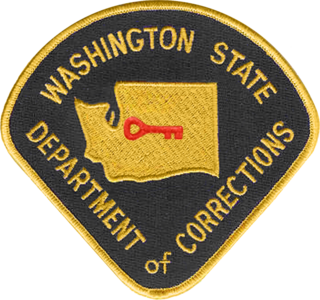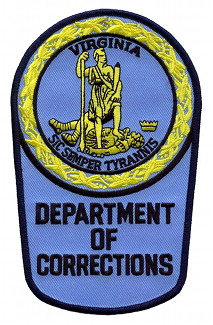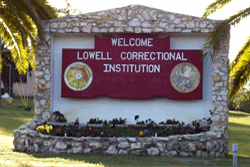Related Research Articles

The Washington State Department of Corrections (WADOC) is a department of the government of the State of Washington. WADOC is responsible for administering adult corrections programs operated by the state. This includes state correctional institutions and programs for people supervised in the community. Its headquarters are in Tumwater, Washington.

Recidivism is the act of a person repeating an undesirable behavior after they have experienced negative consequences of that behavior, or have been trained to extinguish it. Recidivism is also used to refer to the percentage of former prisoners who are rearrested for a similar offense.

A halfway house is an institute for people with criminal backgrounds or substance use problems to learn the necessary skills to re-integrate into society and better support and care for themselves.

The Correctional Service of Canada, also known as Correctional Service Canada or Corrections Canada, is the Canadian federal government agency responsible for the incarceration and rehabilitation of convicted criminal offenders sentenced to two years or more. The agency has its headquarters in Ottawa, Ontario.

A probation or parole officer is an official appointed or sworn to investigate, report on, and supervise the conduct of convicted offenders on probation or those released from incarceration to community supervision such as parole. Most probation and parole officers are employed by the government of the jurisdiction in which they operate, although some are employed by private companies that provide contracted services to the government.

In criminal justice systems, a youth detention center, known as a juvenile detention center (JDC), juvenile detention, juvenile jail, juvenile hall, or more colloquially as juvie/juvy or the Juvey Joint, also sometimes referred to as observation home or remand home is a prison for people under the age of majority, to which they have been sentenced and committed for a period of time, or detained on a short-term basis while awaiting trial or placement in a long-term care program. Juveniles go through a separate court system, the juvenile court, which sentences or commits juveniles to a certain program or facility.
Some jurisdictions may commit certain types of dangerous sex offenders to state-run detention facilities following the completion of their sentence if that person has a "mental abnormality" or personality disorder that makes the person likely to engage in sexual offenses if not confined in a secure facility. In the United States, twenty states, the federal government, and the District of Columbia have a version of these commitment laws, which are referred to as "Sexually Violent Predator" (SVP) or "Sexually Dangerous Persons" laws.

The California Department of Corrections and Rehabilitation (CDCR) is the penal law enforcement agency of the government of California responsible for the operation of the California state prison and parole systems. Its headquarters are in Sacramento.

The New Hampshire Department of Corrections is the government agency in the U.S. state of New Hampshire charged with overseeing the state correctional facilities, supervising probation and parolees, and serving in an advisory capacity in the prevention of crime and delinquency. As of June 30, 2013, the Department had an inmate population of 2,791, 15,267 on probation or parole, and 893 total employees, 470 as corrections officers and 64 as probation/parole officers. The agency has its headquarters in Concord.
The Special Commitment Center (SCC) in the US state of Washington is a post-prison-sentence treatment institution for people designated as sexually violent predators, located on McNeil Island.

The Virginia Department of Corrections (VADOC) is the government agency responsible for community corrections and operating prisons and correctional facilities in the Commonwealth of Virginia in the United States. The agency is fully accredited by the American Correctional Association and is one of the oldest functioning correctional agencies in the United States. Its headquarters is located in the state capital of Richmond.

The GEO Group, Inc. (GEO) is a publicly traded C corporation that invests in private prisons and mental health facilities in the United States, Australia, South Africa, and the United Kingdom. Headquartered in Boca Raton, Florida, the company's facilities include illegal immigration detention centers, minimum security detention centers, and mental-health and residential-treatment facilities. It also operates government-owned facilities pursuant to management contracts. As of December 31, 2021, the company managed and/or owned 86,000 beds at 106 facilities. In 2019, agencies of the federal government of the United States generated 53% of the company's revenues. Up until 2021 the company was designated as a real estate investment trust, at which time the board of directors elected to reclassify as a C corporation under the stated goal of reducing the company's debt.

The Texas Department of Criminal Justice (TDCJ) is a department of the government of the U.S. state of Texas. The TDCJ is responsible for statewide criminal justice for adult offenders, including managing offenders in state prisons, state jails, and private correctional facilities, funding and certain oversight of community supervision, and supervision of offenders released from prison on parole or mandatory supervision. The TDCJ operates the largest prison system in the United States.

The California State Prison System is a system of prisons, fire camps, contract beds, reentry programs, and other special programs administered by the California Department of Corrections and Rehabilitation (CDCR) Division of Adult Institutions to incarcerate approximately 117,000 people as of April 2020. CDCR owns and operates 34 prisons throughout the state and operates 1 prison leased from a private company.

The Second Chance Act of 2007, titled "To reauthorize the grant program for reentry of offenders into the community in the Omnibus Crime Control and Safe Streets Act of 1968, to improve reentry planning and implementation, and for other purposes," was submitted to the House by Representative Danny Davis (D-IL) to amend the Omnibus Crime Control and Safe Streets Act of 1968 to reauthorize, rewrite, and expand provisions for adult and juvenile offender state and local reentry demonstration projects to provide expanded services to offenders and their families for reentry into society. H.R. 1593 was signed into law April 9, 2008.

Lowell Correctional Institution is a women's prison in unincorporated Marion County, Florida, north of Ocala, in the unincorporated area of Lowell. A part of the Florida Department of Corrections, it serves as the primary prison for women in the state. Almost 3,000 women are incarcerated in the complex, which includes the Lowell Annex. As of 2015 2,696 women are in the main Lowell CI, making it the largest prison for women in the United States; its prison population became larger than that of the Central California Women's Facility that year.

The Idaho Department of Correction (IDOC) operates nine prisons, four community release centers and 20 probation and parole offices in seven districts located throughout the state of Idaho. The agency has its headquarters in Boise.

State Correctional Institution (SCI) Cambridge Springs is a minimum-security correctional facility for females in Cambridge Springs, in Crawford County in northwestern Pennsylvania. The majority of the inmates housed here are nearing their release from prison.

Norway's criminal justice system focuses on the principles of restorative justice and the rehabilitation of prisoners. Correctional facilities in Norway focus on maintaining custody of the offender and attempting to make them functioning members of society. Norway's prison system is renowned as one of the most effective and humane in the world.

Incarceration in California spans federal, state, county, and city governance, with approximately 200,000 people in confinement at any given time. An additional 55,000 people are on parole.
References
- 1 2 "Work Release - Locations." Washington State Department of Corrections. Retrieved on March 3, 2011.
- ↑ Agency - WA State Department of Corrections Archived 2011-07-17 at the Wayback Machine